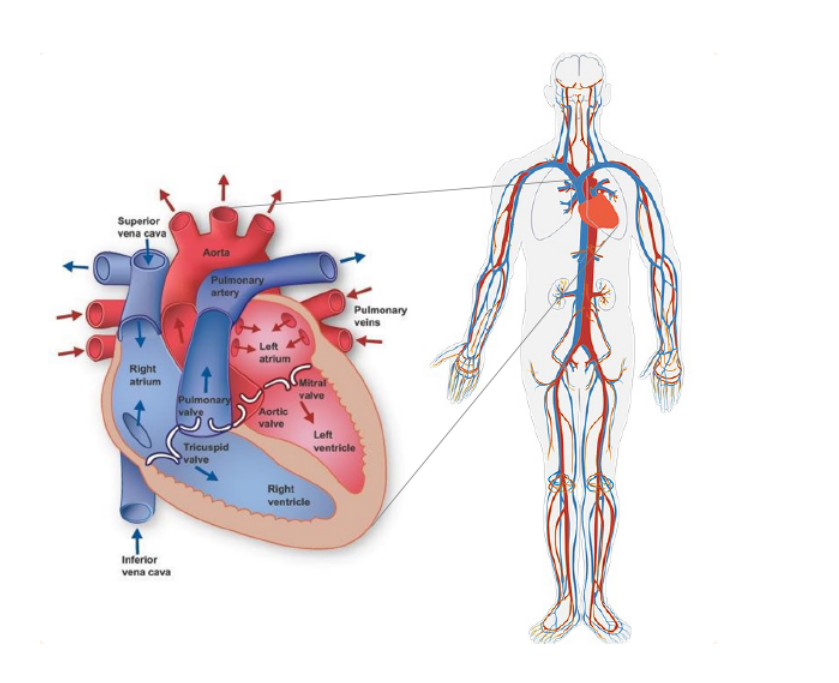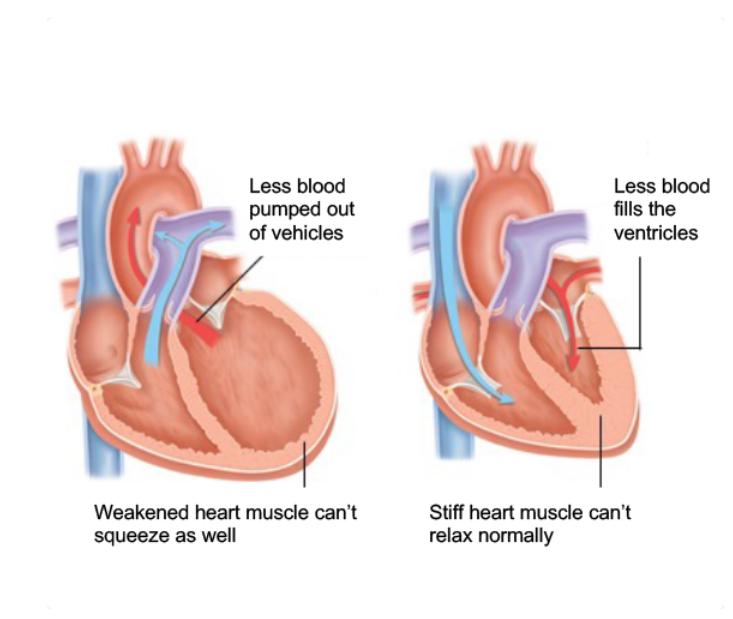- Tendera M. Epidemiology, treatment, and guidelines for the treatment of heart failure in Europe. Eur Hear J Suppl. 2005;7(Suppl J):J5-J9. doi:10.1093/eurheartj/sui056.
- Chronic heart failure in adults: diagnosis and management. 2018, available at https://www.nice.org.uk/guidance/ng106.
- Ebner N, von Haehling S. Iron deficiency in heart failure: a practical guide. Nutrients. 2013;5(9):3730-9. doi:10.3390/nu5093730.
- Klip IT, Comin-Colet J, Voors A a, et al. Iron deficiency in chronic heart failure: an international pooled analysis. Am Heart J. 2013;165(4):575-582.e3. doi:10.1016/j.ahj.2013.01.017.
- McDonagh TA, et al; Eur Heart J. 2021 Aug 27; doi: 10.1093/eurheartj/ehab368.
- https://www.verywellhealth.com/heart-failure-causes-and-risk-factors-1746181
- https://www.mayoclinic.org/diseases-conditions/heart-failure/symptoms-causes/syc-20373142
- Marchi G, Busti F, Vianello A, Girelli D. Anemia and iron deficiency in heart failure: extending evidences from chronic to acute setting. Intern Emerg Med. 2020 Jul 10. doi: 10.1007/s11739-020-02434-9. Epub ahead of print.
Si padece EII de cualquier tipo, corre el riesgo de sufrir anemia / déficit de hierro. Aproximadamente del 36 % al 76 % de las personas con EII padecen anemia ferropénica (anemia por déficit de hierro). Obtenga más información sobre el riesgo de la ADH.
Los síntomas de la anemia / déficit de hierro pueden afectar a muchas áreas de su organismo. Puede experimentar uno o más de estos síntomas al mismo tiempo. Explore todos los signos del déficit de hierro.
Si le han diagnosticado EII, es probable que tenga citas de seguimiento periódicas con su médico. Si se ha sentido fatigado o tiene otros signos de anemia / déficit de hierro como palidez, debilidad o palpitaciones, es posible que desee hablar con su médico sobre sus síntomas y la anemia / déficit de hierro. Es útil pensar en la información que el médico podría necesitar para determinar qué está provocando sus síntomas. El médico puede realizar un análisis de sangre para verificar su nivel de hierro antes de pautar un tratamiento para mejorar sus niveles de hierro.
Una vez que su médico haya analizado sus niveles de hierro, podrá decidir el tratamiento más conveniente para usted. Este dependerá de la severidad de anemia / déficit de hierro que presente y podría aconsejarle sobre cómo obtener más hierro de su dieta y/o recomendarle ciertos medicamentos para mejorar sus niveles de hierro. Puede encontrar más información sobre las diferentes opciones de tratamiento y cómo obtener la mayor cantidad de hierro de su dieta siguiendo el enlace.
.
Si padece EII de cualquier tipo, corre el riesgo de sufrir anemia / déficit de hierro. Aproximadamente del 36 % al 76 % de las personas con EII padecen anemia ferropénica (anemia por déficit de hierro). Obtenga más información sobre el riesgo de la ADH.
Los síntomas de la anemia / déficit de hierro pueden afectar a muchas áreas de su organismo. Puede experimentar uno o más de estos síntomas al mismo tiempo. Explore todos los signos del déficit de hierro.
Si le han diagnosticado EII, es probable que tenga citas de seguimiento periódicas con su médico. Si se ha sentido fatigado o tiene otros signos de anemia / déficit de hierro como palidez, debilidad o palpitaciones, es posible que desee hablar con su médico sobre sus síntomas y la anemia / déficit de hierro. Es útil pensar en la información que el médico podría necesitar para determinar qué está provocando sus síntomas. El médico puede realizar un análisis de sangre para verificar su nivel de hierro antes de pautar un tratamiento para mejorar sus niveles de hierro.
Una vez que su médico haya analizado sus niveles de hierro, podrá decidir el tratamiento más conveniente para usted. Este dependerá de la severidad de anemia / déficit de hierro que presente y podría aconsejarle sobre cómo obtener más hierro de su dieta y/o recomendarle ciertos medicamentos para mejorar sus niveles de hierro. Puede encontrar más información sobre las diferentes opciones de tratamiento y cómo obtener la mayor cantidad de hierro de su dieta siguiendo el enlace.
.



















